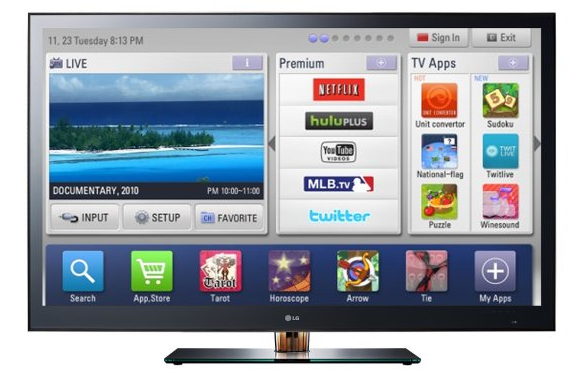smart TV
Smart TV is another name for the trademarked term Hybrid TV( HbbTV), but has more advanced functions. The technology originates from a pan-European initiative to harmonize programs transmitted via broadcast television and the Internet. Smart TV combines the programs transmitted via different transmission paths and using different transmission technologies in a single device: the smart TV.
In terms of reception, smart TVs are two completely separate systems: one for broadcast reception and the other for Internet access. The latter requires data rates of at least 6 Mbps. Each system is self-sufficient and can receive broadcast television or Internet television( IPTV). In addition, the content of both technologies can be combined in such a way that they provide additional benefits to the user. To do this, the IP-based content coming from the Internet is superimposed on the TV picture in sync with the time, with links to other websites.
The combination supports user interactivity. Interactive services from the Internet can be superimposed on the broadcast television and triggered by remote control. For example, ordering options for teleshopping or voting options via electronic voting. In addition, online media libraries can be searched, electronic program guides( EPG) can be displayed and on-demand services such as video-on-demand, audio-on-demand and others can be accessed from the Internet. Another broad field of application for smart TVs is social TV, a symbiosis of television and social media in which media users carry out program-accompanying interactions via social networks.

